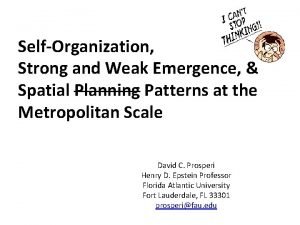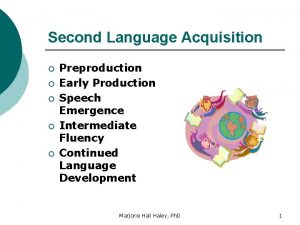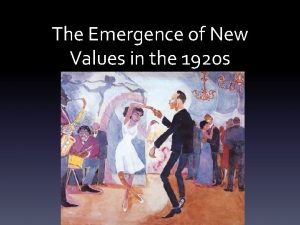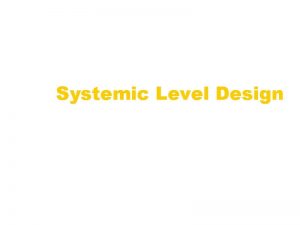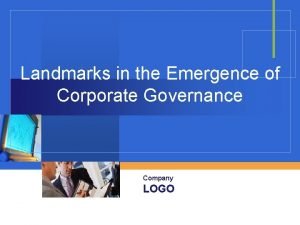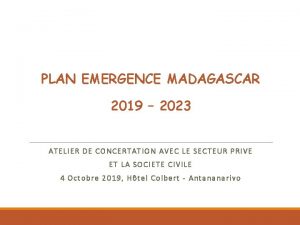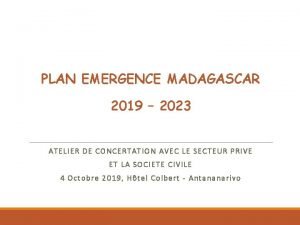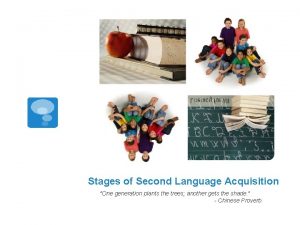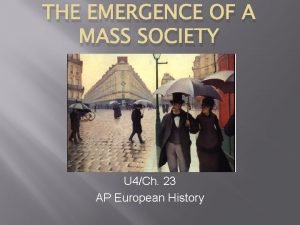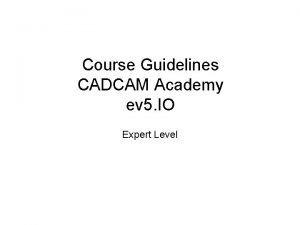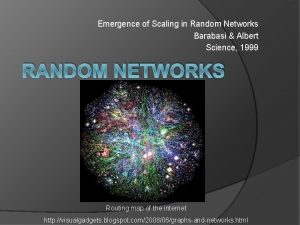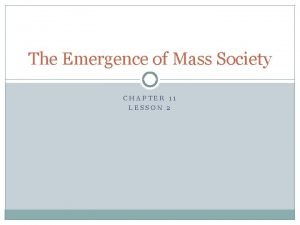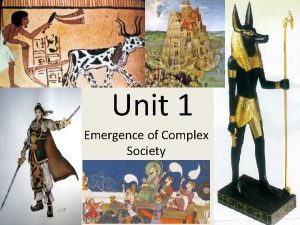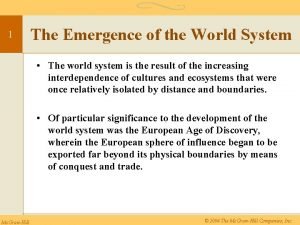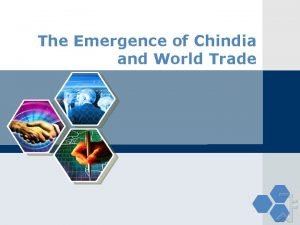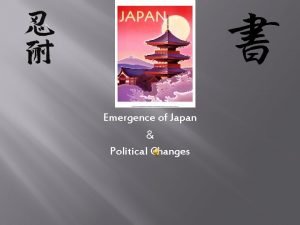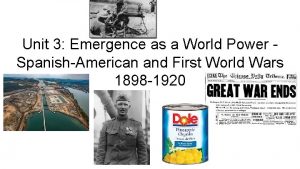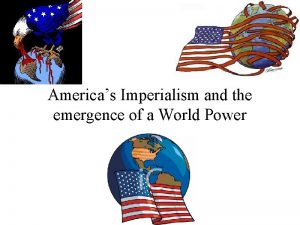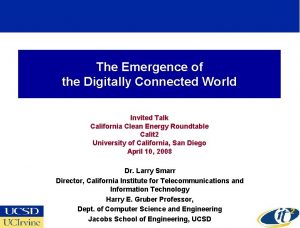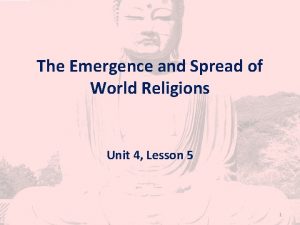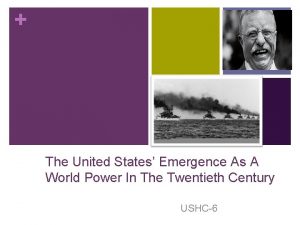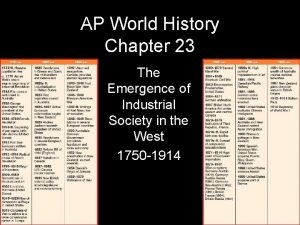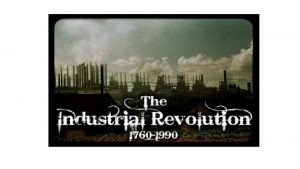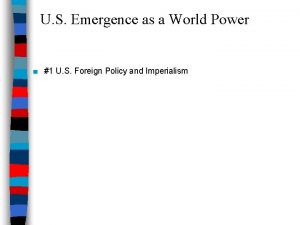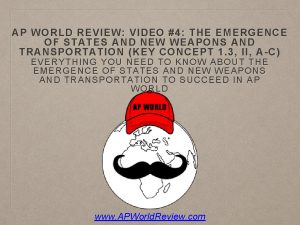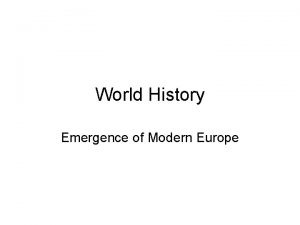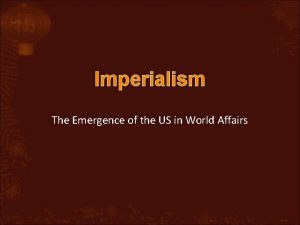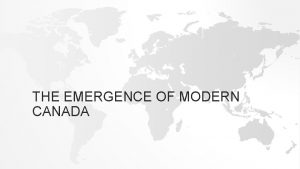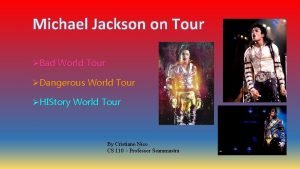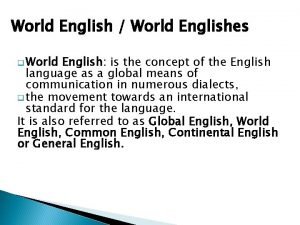The Emergence of the U S in World























- Slides: 23

The Emergence of the U. S. in World Affairs Goal 6

Goal 6 ► The emergence of the United States in world affairs (1890 – 1914) – The learner will analyze causes and effects of the United States’ emergence as a world power.

Objective 6. 01 ► Identify the areas of the United States military, economic, and political involvement and influence.

Manifest Destiny ► Belief that God wanted American to expand to the West… ► and beyond.


► How far did U. S. influence extend? ► How far does U. S. influence extend today?

Imperialism ► The policy in which stronger nations extend their economic, political, or military control over weaker territories. ► Taking colonies to form an empire

Imperialism (continued) ► The U. S. follows this path for 3 reasons § The need for resources and markets § Global competition § Closing of the frontier ►Census Bureau – 1890 – “The § Jeffersonian ideals fading? frontier is closed”


Fueling Imperialism ► Global competition ► Desire for military strength § Alfred Thayer Mahan ► Thirst for new markets

Global Competition ► European nations had been establishing overseas empires for years § Africa § China ►Spheres § Pacific § Caribbean of Influence


Alfred Thayer Mahan ► Served in U. S. Navy for nearly 40 years ► Became president of Naval War College ► Advocated military expansion ► Wrote The Influence of Sea Power upon History, 1660 – 1783

Alfred Thayer Mahan (continued) ► Called for a modern fleet capable of protecting American business and shipping interests around the world. ► Called for naval bases in the Caribbean, a canal across the isthmus of Panama, and the acquisition of Hawaii ► Theodore Roosevelt admired his book § Future implications?

Frederick Jackson Turner ► Historian ► Frontier Thesis: § Said America’s Western frontier made the U. S. democratic § All were equal on the frontier

Social Darwinism ► Herbert Spencer ► The idea that the fittest survive in the human population

“Anglo-Saxon Superiority” ► Belief that Anglo-Saxon way of life was “better” and more advanced than others ► How was this shown? § Treatment of African-Americans § Treatment of Native Americans § Treatment of immigrants § Treatment of people in colonies

Josiah Strong ► Wrote Our Country ► Said it was America’s duty to expand civilization based on Anglo-Saxon superiority § Excuse for annexation of Philippines – 1890 s

“White Man’s Burden” ► Belief that it was the white man’s job to “civilize” the rest of the world § Goes along with assimilation § Kipling poem


Mercantilism ► An economic system in which nations seek to increase their wealth and power by obtaining large amounts of gold and silver and by establishing a favorable balance of trade ► Colonies make mother country richer

Spheres of Influence ► China – 1900 – European powers taking over zones of control in China. U. S. opposed it because it would limit America’s access to trade.

 So&e
So&e Speech emergence stage
Speech emergence stage The emergence of new values
The emergence of new values Emergence
Emergence Landmarks in emergence of corporate governance
Landmarks in emergence of corporate governance Plan emergence madagascar 2019-2023 pdf
Plan emergence madagascar 2019-2023 pdf Plan emergence madagascar 2019-2023 pdf
Plan emergence madagascar 2019-2023 pdf Stages of second language development
Stages of second language development Mass society
Mass society Emergence netflix
Emergence netflix Emergence theory
Emergence theory Emergence profile
Emergence profile Emergence of scaling in random networks
Emergence of scaling in random networks Entrepreneurship during post independence
Entrepreneurship during post independence The emergence of mass society
The emergence of mass society Cái miệng nó xinh thế chỉ nói điều hay thôi
Cái miệng nó xinh thế chỉ nói điều hay thôi Các châu lục và đại dương trên thế giới
Các châu lục và đại dương trên thế giới Bổ thể
Bổ thể Từ ngữ thể hiện lòng nhân hậu
Từ ngữ thể hiện lòng nhân hậu Tư thế ngồi viết
Tư thế ngồi viết Thế nào là giọng cùng tên?
Thế nào là giọng cùng tên? Thơ thất ngôn tứ tuyệt đường luật
Thơ thất ngôn tứ tuyệt đường luật Làm thế nào để 102-1=99
Làm thế nào để 102-1=99 Alleluia hat len nguoi oi
Alleluia hat len nguoi oi
